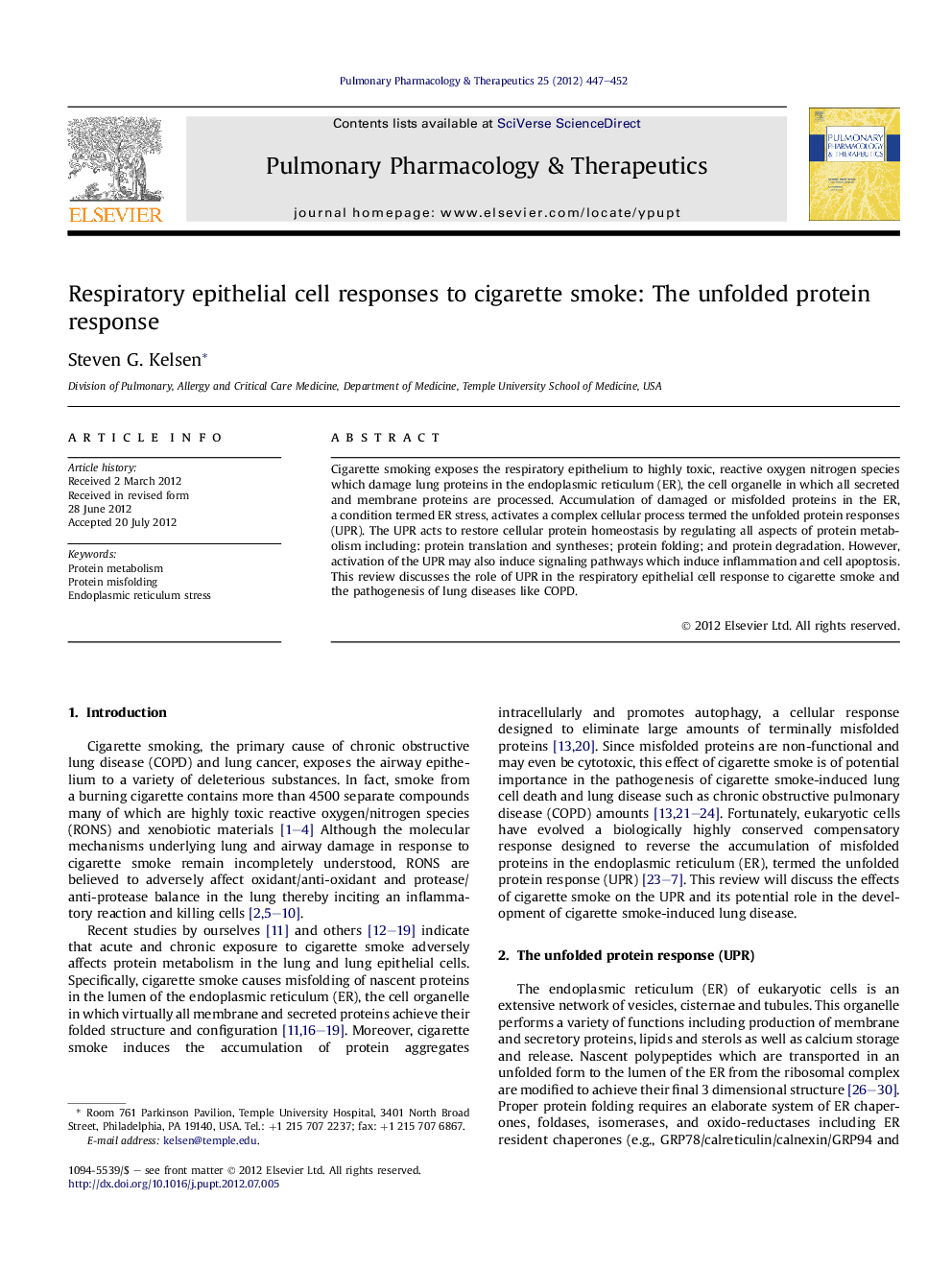| Article ID | Journal | Published Year | Pages | File Type |
|---|---|---|---|---|
| 2567264 | Pulmonary Pharmacology & Therapeutics | 2012 | 6 Pages |
Cigarette smoking exposes the respiratory epithelium to highly toxic, reactive oxygen nitrogen species which damage lung proteins in the endoplasmic reticulum (ER), the cell organelle in which all secreted and membrane proteins are processed. Accumulation of damaged or misfolded proteins in the ER, a condition termed ER stress, activates a complex cellular process termed the unfolded protein responses (UPR). The UPR acts to restore cellular protein homeostasis by regulating all aspects of protein metabolism including: protein translation and syntheses; protein folding; and protein degradation. However, activation of the UPR may also induce signaling pathways which induce inflammation and cell apoptosis. This review discusses the role of UPR in the respiratory epithelial cell response to cigarette smoke and the pathogenesis of lung diseases like COPD.
